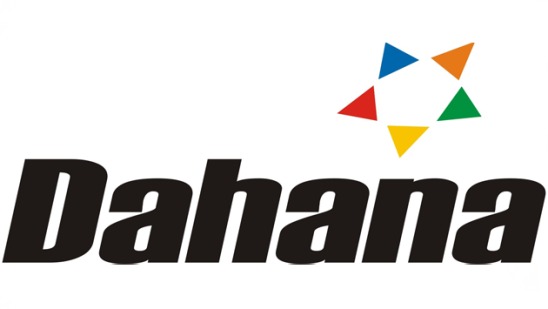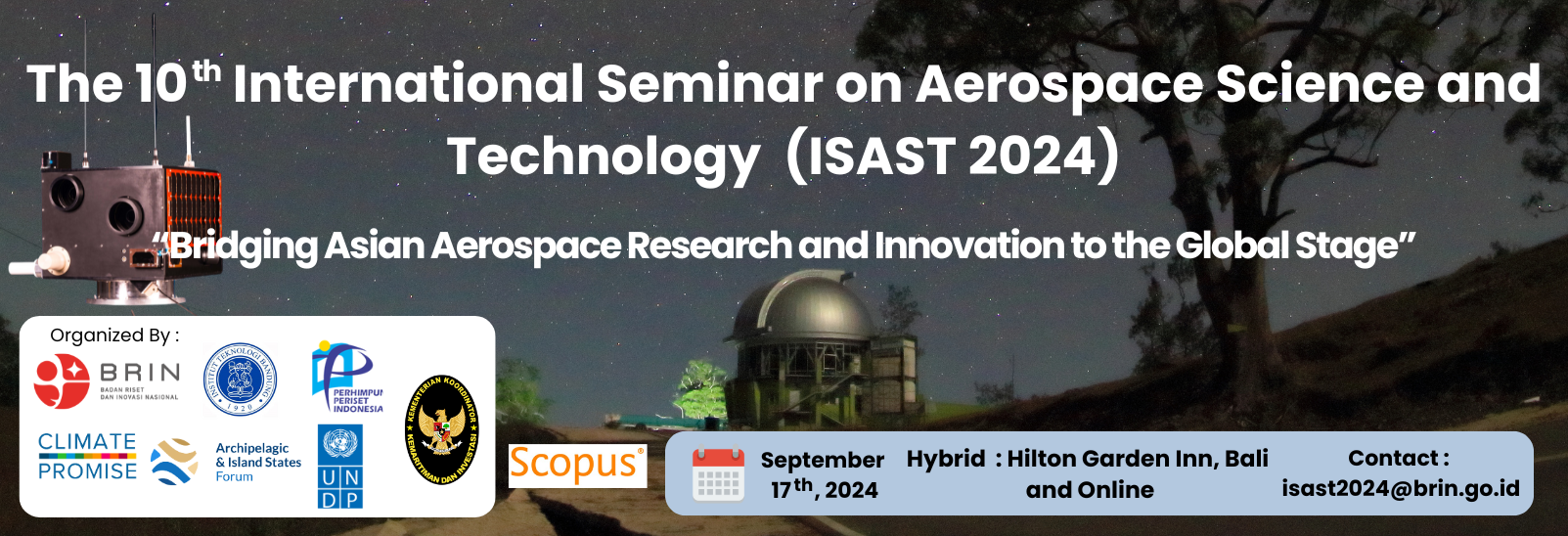
Announcement
1. Download Conference Flyer here.
2. Download Guidelines for authors here.
3. Download Paper Templates for Word Doc here.
4. Download Paper Templates for LaTeX here.
5. Payment Confirmation here.
6. Upload Full Paper here.
7. Download ISAST Rundown here.
8. Upload Presentation Video Files (We accept a File extension mp4 and Maximum size is 100 Mb) here.
9. Upload Presentation Files (We accept a File extension ppt or pptx, and Maximum size is 10 Mb) here.
10. Download Virtual Background here
11. Please check your email to access link zoom of the seminar on September 17, 2024 08:00 WITA (Local Bali Time) / UTC+8
12. Download complementary files for publication Here
13. Instructions to submit final version to equinOCS Here
The 10th International Seminar on Aerospace Science and Technology (ISAST 2024)
The 10th International Seminar of Aerospace Science and Technology 2024 (ISAST 2024) serves as a significant forum for advancing the theme of “Bridging Asian Aerospace Research and Innovation to the Global Stage,” with a special focus on integrating aviation and aerospace science and technology for climate solutions. Since its start in 2013, ISAST has established itself as an essential meeting for international researchers, academia, and professionals in the aviation and aerospace sectors, facilitating interdisciplinary collaboration and knowledge sharing. Despite challenges like the COVID-19 epidemic, which prompted a shift to online formats starting in 2020, ISAST consistently addresses issues relevant to the most recent breakthroughs in aerospace science and technology.
This year’s conference, which coincides with the “Bali International Air Show 2024” event, is of special significance. By including this industrial event, ISAST hopes to foster synergy among researchers, stakeholders, and the aviation industry, further emphasizing the theme of bridging Asian aerospace research and innovation to the global stage. ISAST 2024 focuses on how aviation and aerospace science and technology could contribute to climate solutions. Through keynote speeches, panel discussions, and technical sessions, experts and participants will discuss innovative strategies such as green aviation technologies, advanced aerospace design and manufacture, space-based climate monitoring, and space science to address climate change challenges.
The conference provides an opportunity for attendees to share expertise, form collaborations, and make an impact in tackling climate change through aerospace innovation. By leveraging this platform, ISAST continues its mission of advancing Asian aerospace research and innovation on the global stage, ultimately contributing to the advancement of aviation and space technology for the benefit of society and the environment.
Call for Extended Abstracts
The ISAST 2024 organizing committee is now accepting papers for presentation at the conference on the following topics:
A. Climate Change Detection and Monitoring Using Aeronautics and Space Technology
1. Carbon Counting and Carbon Emission
2. Disaster Monitoring
3. Global Warming through Thermal Detection
4. Forest Fire Detection
5. Satellite Sensor Applications
6. LIDAR Techniques and Applications
7. Synthetic Aperture Radar Applications
B. Space Environment and Climate Change Interactions
1. Space Weather
2. Space Environment Dynamics
3. Upper Atmosphere Dynamics – Ionosphere – Magnetosphere Coupling
4. Solar Influences on Earth’s Climate
5. Astronomy and Astrophysics
C. Innovative Aviation and Aeronautics Technology Toward a Green and Sustainable Environment
1. Smart UAV Mission and Application
2. Aircraft and UAV Sensor Technology
3. Advanced Structure Design and Manufacture
4. Aviation Instrumentation
5. Aircraft Performance
6. Aviation Transport Planning
7. Aerodynamics
8. Flight Dynamics and Control
D. Advance Aerospace Technology in Combating Climate Change
1. Data Collection Platform (Sensors and Payloads)
2. Propulsion Systems
3. Advanced Aerospace Materials
4. Advanced Aerospace Systems
5. Launch Vehicles
6. Aerospace Subsystems
7. Trajectory Planning (Flight Mechanics and Astrodynamics)
Please submit your extended abstract via this link.
Opening Speech
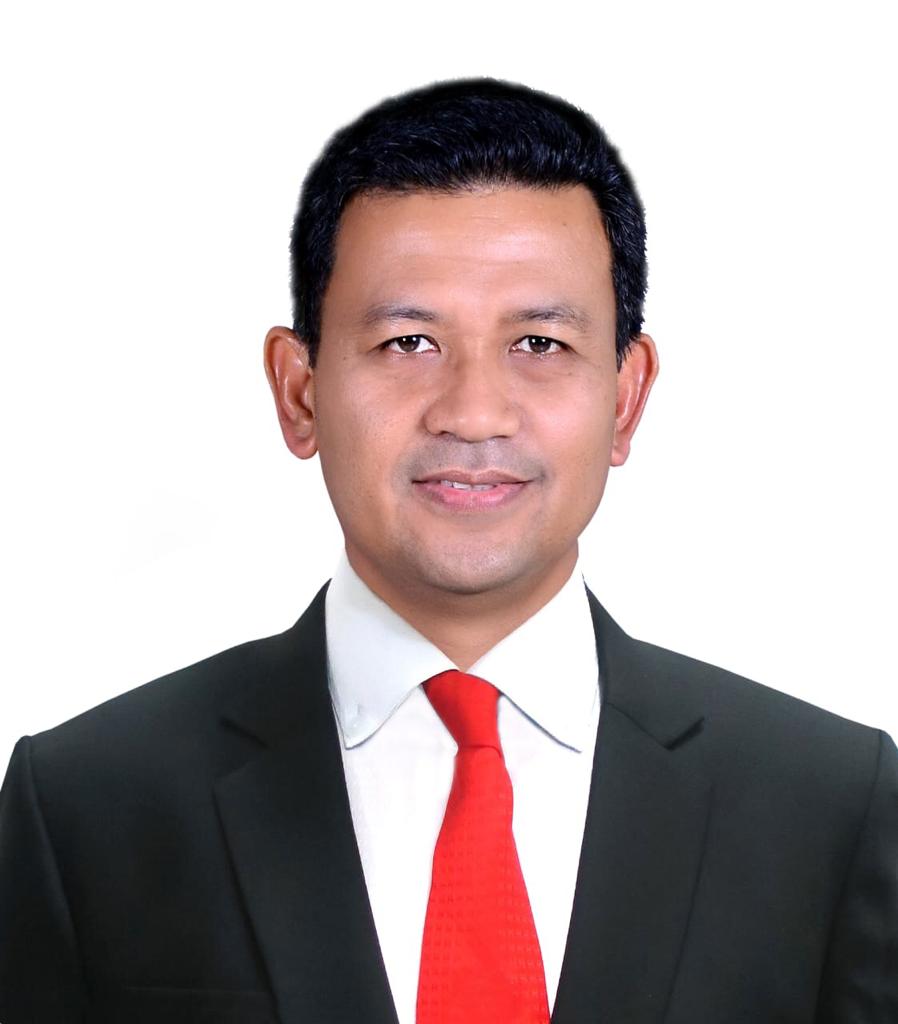
Prof. Dr. Ir. Amarulla Octavian M.Sc., DESD., ASEAN Eng
Vice Chairman of the National Innovation and Research Agency of the Republic of Indonesia
Prof. Amarulla Octavian is Vice Admiral of the Indonesian Navy (Retd.). He graduated from Naval Academy in 1988 and was assigned onboard destroyer and frigates until 2002. He was Commanding Officer of KRI Tjiptadi (LF-881) in 2003 and KRI Karel Satsuitubun (FFG-356) in 2006. He has several important afloat assignments including Commander of the 2nd Division Escorta Squadron, Commander of the Fast Patrol Boat Squadron, Eastern Fleet Command in 2007, and Commander of the Sea Battle Group, Western Fleet Command in 2013. Ashore, he has been Commandant of the Naval Staff and Command College in 2018, and Rector of the Republic of Indonesia Defense University in 2020 prior to his current government position. He holds a bachelor degree from Indonesia Naval Technology College in 2001, Master of Science degree from Université Paris 2 Panthéon-Assas in 2006 and doctorate degree on military sociology from University of Indonesia in 2013. He is a permanent professor of the Republic of Indonesia Defense University and visiting professor for some universities domestically and abroad. He is a senior researcher on maritime security, military sociology, and naval strategy. He is the author of several articles, books and scholarly works in international journals. He was awarded 8 stars and 13 medals of honor over the course of his service. He was also awarded the French Government’s meritorious Commandeur dans l’Ordre National du Merité
Keynote Speakers
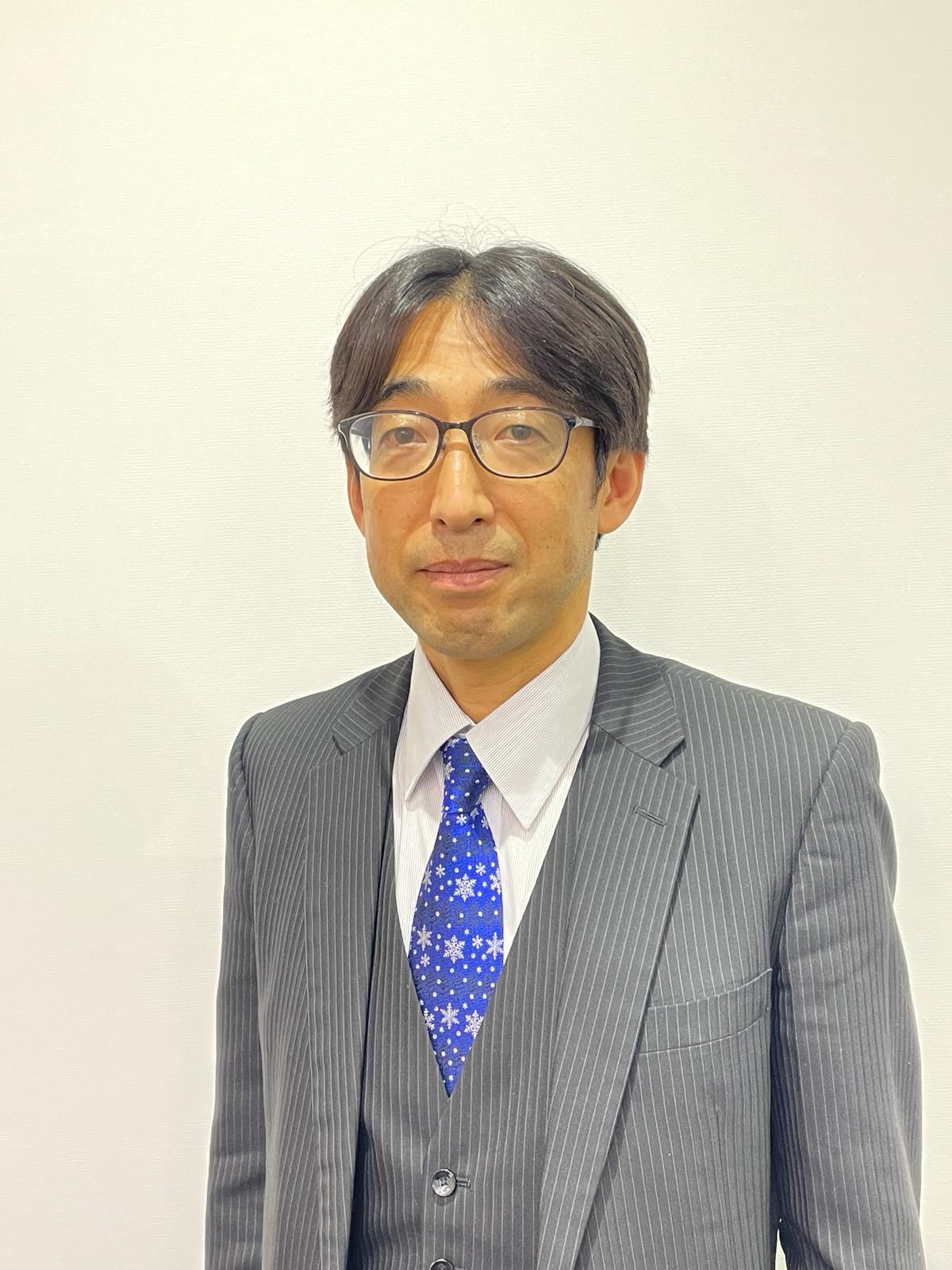
Mr. Atsushi Watanabe
Director-General for International Cooperation, National Space Policy Secretariat, Cabinet Office, The Government of Japan
Mr. Atsushi Watanabe serves as the Deputy Director-General of the National Space Policy Secretariat within the Cabinet Office of the Japanese government. The National Space Policy Secretariat plays a crucial role in planning, designing, and coordinating policies related to space exploitation in Japan. The Cabinet Office is in charge of planning, designing and coordinating policies concerning space exploitation, implementing policies regarding development, maintenance and operation of the Quasi-Zenith Satellite System (QZSS). In accordance with the Basic Space Law, the Strategic Headquarters for National Space Policy was established to comprehensively and systematically promote policies related to the space development and utilization.
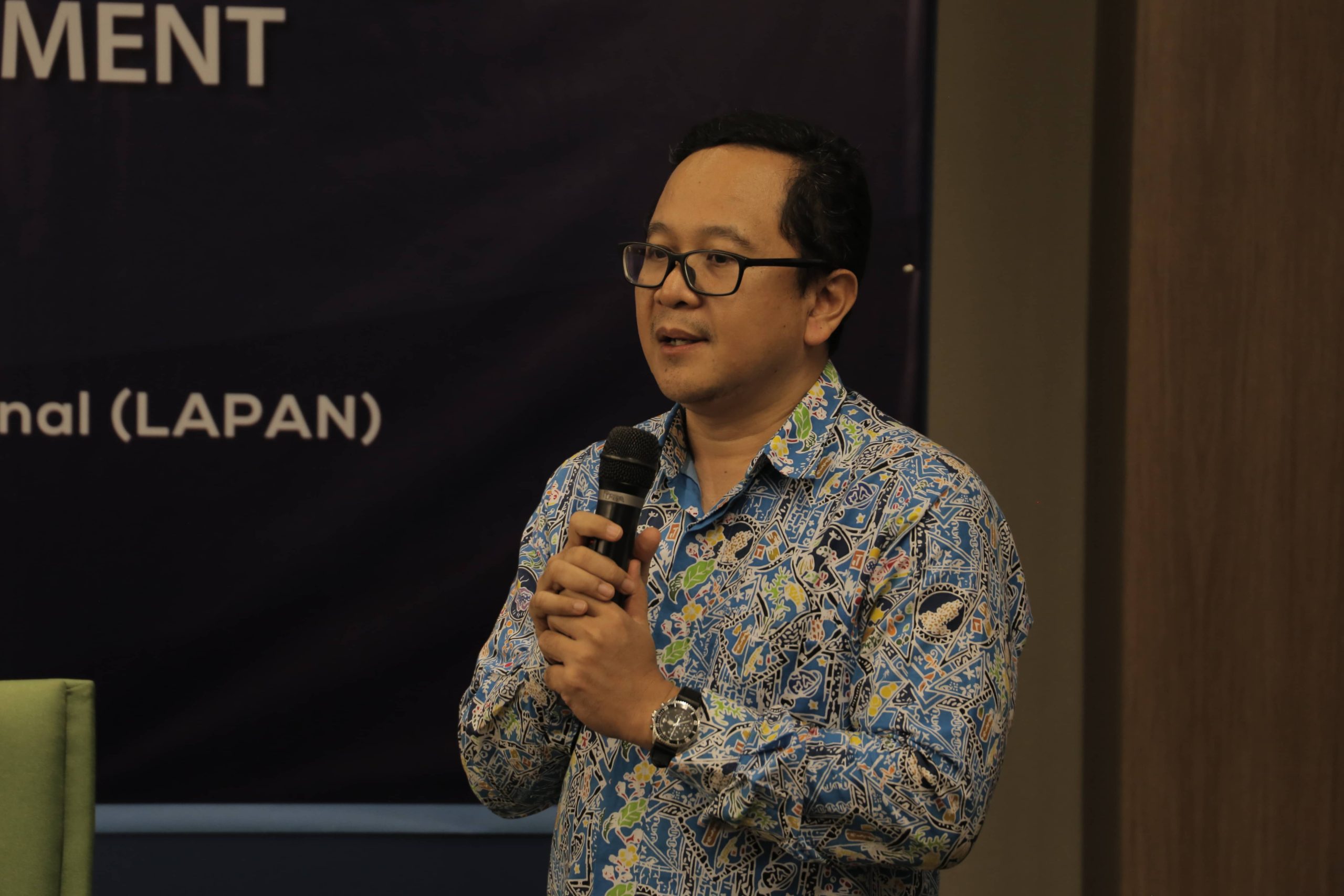
Dr. Robertus Heru Triharjanto
Chairman of Research Organization for Aeronautics and Space, BRIN, Indonesia
Dr. Robertus Heru Triharjanto started his career at the National Institute for Aeronautics and Space (LAPAN) in 1998. He worked as a design/flight test engineer at LAPAN and as an air safety investigator at the National Transportation Safety Committee (MoT) until 2003. He was the chief engineer for Indonesia’s first micro-satellite development until 2008. Until 2018, he worked as a satellite design engineer at the Satellite Technology Center. During this period, LAPAN successfully launched its second and third satellites. He then held the position of Director of the Center for Aerospace Policy Studies up until September 2021. He was Acting Director of the Research and Innovation Partnership at the National Research and Innovation Agency (BRIN) until March 2022. He is now the head of the Research Center for Aeronautics and Space at BRIN.
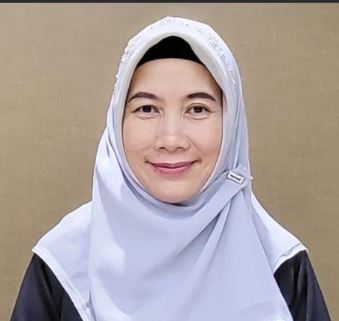
Prof. Dr. Erna Sri Adiningsih
Executive Director of INASA, Indonesia
Prof. Dr. Erna Sri Adiningsih is a Research Professor in Remote Sensing Technology. She has conducted research activities in the areas of image processing and satellite applications since 1989. She achieved her PhD in Applied Geophysics and Meteorology from the IPB University Indonesia. Formerly, she was assigned as the Director of Aerospace Policy Analysis and Information Center of the Indonesian National Institute of Aeronautics and Space (LAPAN) from 2007 until 2013. She was appointed as the Executive Secretary of LAPAN from 2018 until 2021. Then she was appointed as the Acting Head of Research Organization for Aeronautics and Space under the National Research and Innovation Agency (BRIN). Now Prof Erna is continuing her enrollment as senior researcher at the Research Center for Remote Sensing of BRIN. She has also been assigned as the Executive Director of the Indonesian Space Agency (INASA) Secretariat of BRIN since May 2022 to conduct tasks in international space affairs and multilateral cooperation in space activities.
Invited Speakers
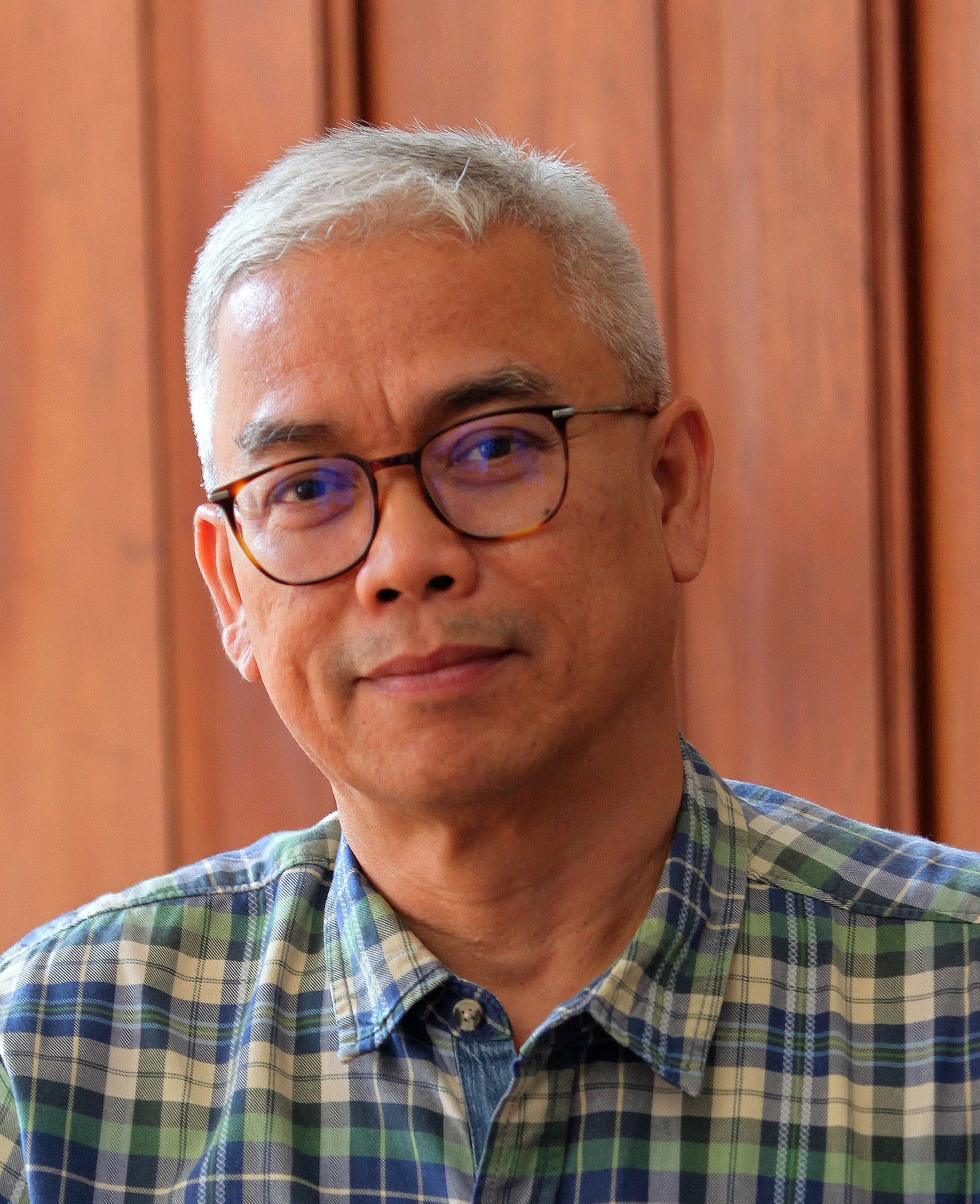
Prof. Taufiq Hidayat
(Bandung Institute of Technology, Indonesia)
Prof. Taufiq Hidayat is a Professor of Astronomy at the Bandung Institute of Technology. He holds a B.S. in Astronomy from Bandung Institute Technology in Indonesia, an M.Sc. in Astrophysique d’Ile de France from Diderot (Paris 7), Sorbonne Paris Cité in France, and a Ph.D. in Techniques Spatiales from Université Paris Diderot (Paris 7), Sorbonne Paris Cité in France. His research interests include radio astronomy, the solar system, astroclimatology, and astronomical site characterization.
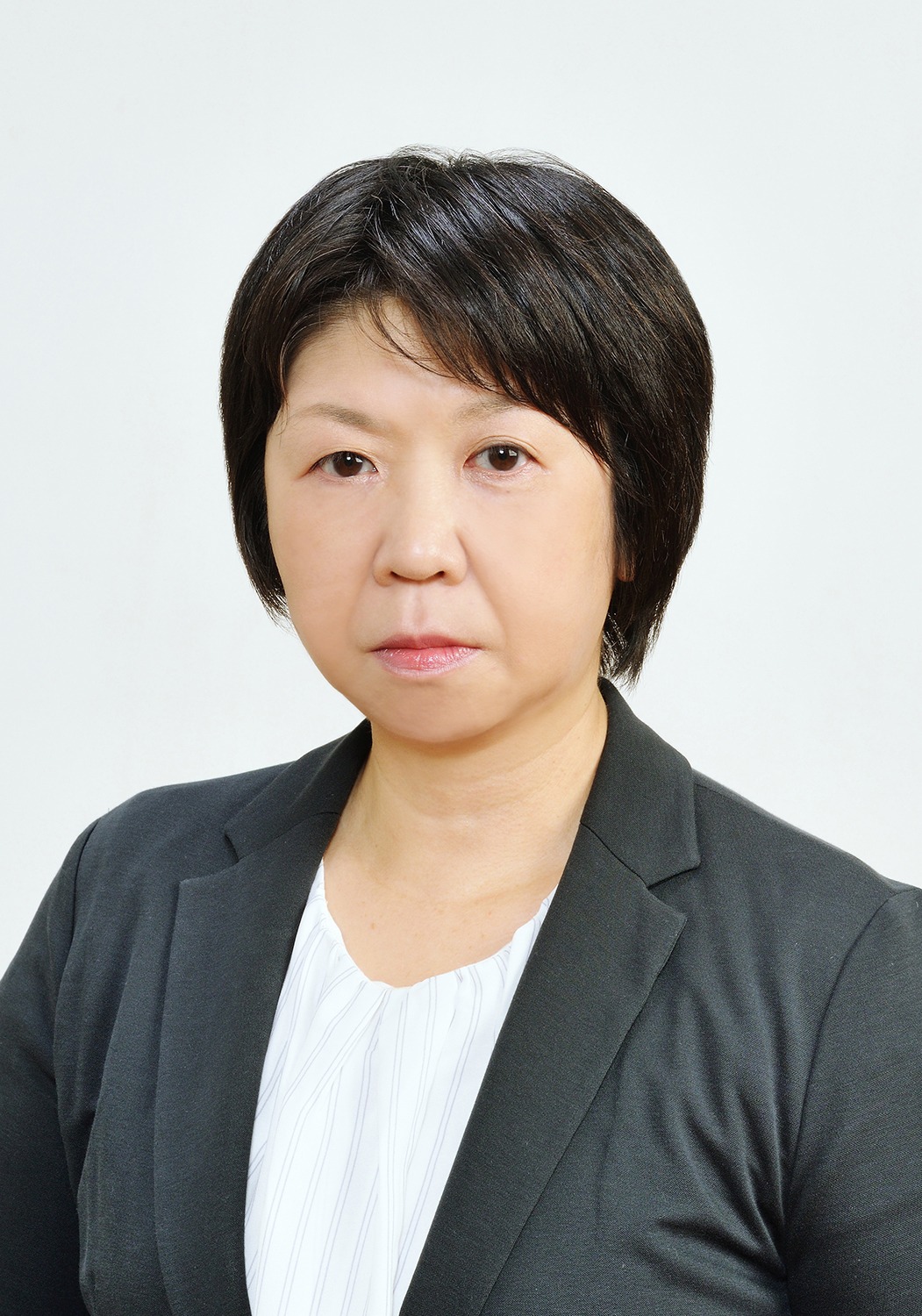
Dr. Hiroyo Ohya
Hiroyo Ohya is an Associate Professor in the Graduate School of Engineering at Chiba University, Japan. She received the B.S., and Ph. D degrees in geophysics from Chiba University and Nagoya University, Japan, 1992, and 2012, respectively. Her major research interests include, characteristics of the D-region ionosphere, electricity of atmospheric global electric circuit, and coupling from the solid Earth to the ionosphere. Additionally, she is involved in the VLF observation projects, AVON/OCTAVE as the project scientist. She contributes to the activity of Study Group 3 in International Telecommunication Union (ITU-R/SG3) as a committee member of Ministry of Internal affairs and Communications (MIC), Japan, since 2015. She is also an editor of Earth, Planets and Space. She is a Steering Committee Member of the Society of Geomagnetic and Earth, Planetary and Space Sciences (SGEPSS), Japan since 2019. She is also Diversity Promotion Working Group Member of the SGEPSS and Japan Geoscience Union (JpGU).
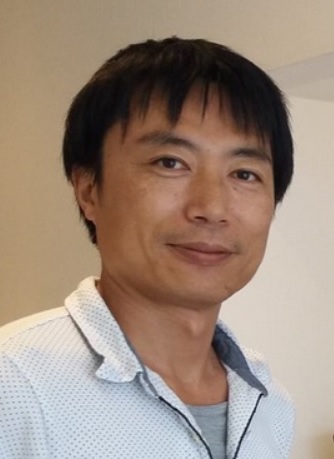
Dr. Mikio Kurita
Dr. Mikio Kurita is an Associate Professor in the Graduate School of Science, Division of Physics and Astronomy at Kyoto University. His research interests lie in the field of astrophysics, with a focus on star-forming regions, interstellar dust, and instrumentation. He has contributed to the study of various celestial phenomena, including cataclysmic variables, X-ray binaries, gamma-ray bursts, and stellar flares. He has over 10 years of extensive experience in the development of telescopes, optics, and astronomical instruments. He also has experience in manufacturing optics and as a project manager (Seimei telescope). Inventor of patents related to data analysis, telescope structure, and optics manufacturing. Excellent skills in metrology, physics, and mathematics.
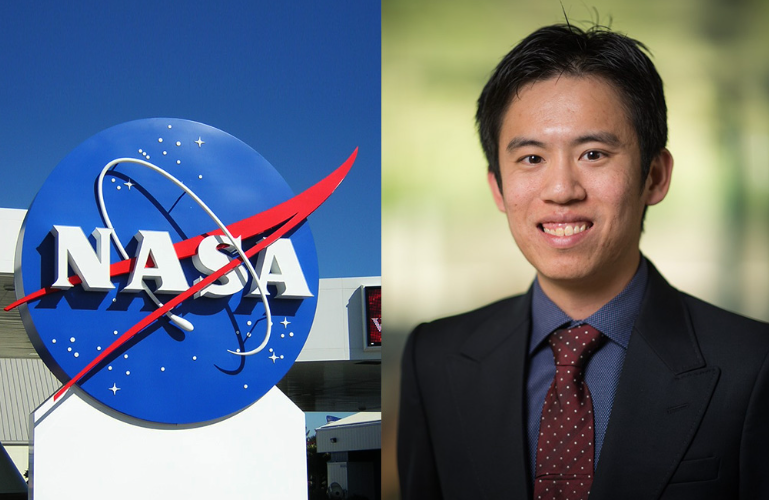
Dr. Gan Kai Poh
Dr. Gan Kai Poh has held the position of Research Associate Professor at the Catholic University of America in Washington, DC, since 2022. He began his research journey as a Graduate Research Assistant at the University of Michigan in Ann Arbor, where he worked from 2012 to 2017. Following this, he held the role of Postdoctoral Research Fellow at the University of Michigan from 2017 to 2018. He then moved to NASA Goddard Space Flight Center as a postdoctoral research associate under the CRESSTII program, initially affiliated with the University of Maryland, Baltimore County, from 2018 to 2019, and later with the Catholic University of America from 2019 to 2021. Dr. Poh’s diverse academic background and research experiences have been beneficial to his current role, where he continues to contribute to space science and exploration.

Dr. Rezy Pradipta
(Boston College, USA)
The main area of his research is the study of ionospheric and space plasma phenomena using a variety of ground-based and satellite-borne diagnostic instruments. These phenomena include traveling ionospheric disturbances (TIDs), acoustic-gravity waves (AGWs), and equatorial plasma bubbles (EPBs). Useful instruments for studying these phenomena include ionosondes, ground-based GPS receiver networks, incoherent scatter radars, and various satellite missions. He is particularly interested in developing new and innovative ways to carry out effective surveillance of these ionospheric plasma phenomena, extract useful information from the data, and disseminate the information to serve many who need updates on space weather conditions.
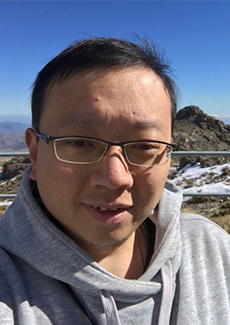
Prof. Jiang Jian
(University of Science and Technology of China, China)
Prof. Jian Jiang (“姜继安” in Chinese) obtained his PhD from the University of Tokyo in March 2019. After that, he worked as a postdoctoral fellow at Kavli IPMU for three years and then moved to the National Astronomical Observatory of Japan (NAOJ) as a research fellow in 2022. Since April 2023, he has joined the Department of Astronomy at USTC as a professor and has become an international visiting researcher at NAOJ. Prof. Jiang mainly works on supernova (SN) and related transient studies by leading/joining wide-field transient survey projects. He has been awarded about 2000 hours of ground and space telescope time since 2014. Currently, he is a core member of the Chinese 2.5-meter Wide Field Survey Telescope (WFST, or “Mozi”) project and is in charge of the design of the observation strategy, management of the WFST survey and follow-up observations, and the SN (and other related transient) science panel of the WFST.
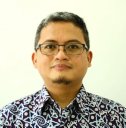
Dr. Yazdi I. Jenie
(Bandung Institute of Technology, Indonesia)
Dr. Yazdi Ibrahim Jenie, S.T., M.T., is an Associate Professor at the Faculty of Mechanical and Aerospace Engineering, Bandung Institute of Technology (ITB). He began his studies in Aerospace Engineering at ITB in 2001 and spent one year working on his final project at Toyohashi University of Technology, Japan, before obtaining his Bachelor of Engineering (B.Sc.) degree from ITB in 2006. Shortly after, he started his master’s program at ITB as part of the development of the Wing in Surface Effect prototype, in collaboration with the Agency for the Assessment and Application of Technology (BPPT), from which he obtained his Master of Engineering (M.Sc.) degree (cum laude) in 2008. In mid-2011, he received the Merit Scholarship Program for High Technology from the Islamic Development Bank, which allowed him to pursue his doctoral program at the Faculty of Aerospace Engineering, Delft University of Technology, the Netherlands. His research topic focused on unmanned aerial vehicles, particularly autonomous conflict detection and resolution systems. He defended his research and received his doctoral degree in January 2017.
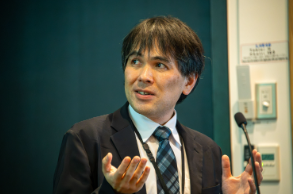
Prof. Koji Shimoyama
(Department of Mechanical Engineering, Kyushu University, Japan)
Prof. Koji Shimoyama is working on research and education for optimal, robust, and intelligent fluid machinery created by fluids engineering integrated with mathematical and data sciences.
Important Dates
| Call for Papers | : | April 5, 2024 |
| : | ||
| : | ||
| : | ||
| Extended Abstract Submission Deadline | : | June 30, 2024 |
| : | ||
| Extended Abstract Acceptance Notification | : | July 10, 2024 |
| Full Paper Submission Deadline | : | August 1, 2024 |
| Full Paper Acceptance Notification | : | August 14, 2024 |
| Full Paper Final Submission Deadline | : | September 10, 2024 |
| : | ||
| Video and Presentation File Submission Deadline | : | September 12, 2024 |
| Seminar Event | : | September 17, 2024 |
Venue
Seminar Venue
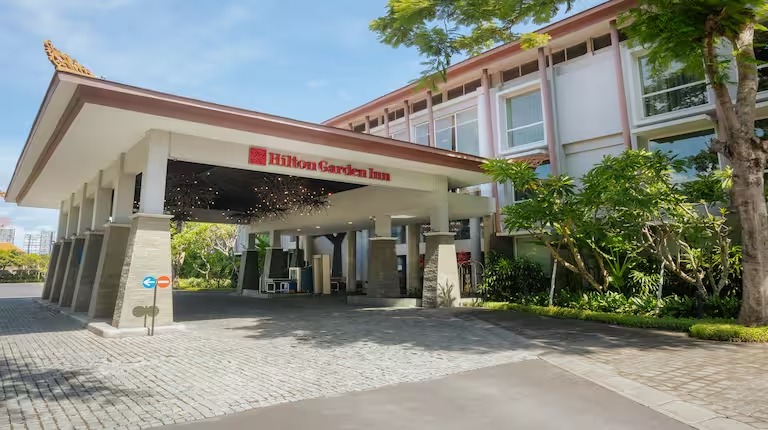
Hybrid: Hilton Garden Inn, Bali (On-Site) and Virtual Conference (Online)
Registration Fees
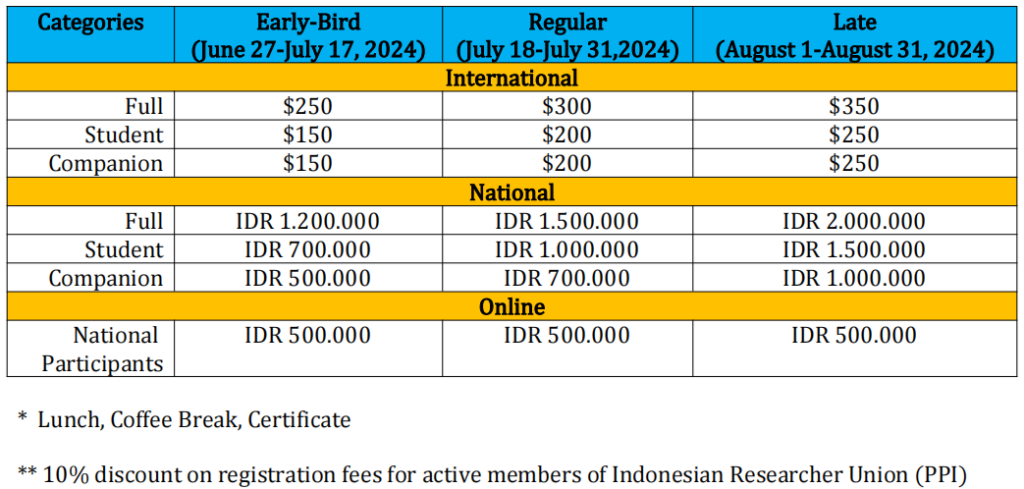
Registration Payment Method
Payment by Bank Transfer to:
Bank: Bank Rakyat Indonesia
Account number: 0359-01-002587-30-0
Name: Perhimpunan Periset Indonesia Jawa Barat
Publications
All submissions will be subject to peer-review process, and accepted papers will be submitted for inclusion into Springer Proceedings in Physics subject to meeting the scope and quality requirements.
Programme
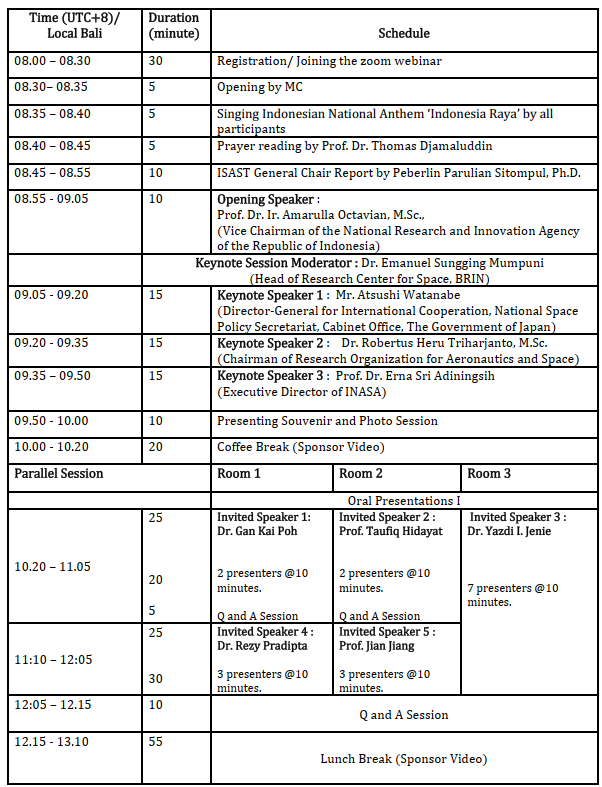
Download Round down of ISAST 2024 Link
Previous Events
List of related/similar Seminar:
- International Seminar on Aerospace Science and Technology (ISAST) 2022
- International Seminar on Aerospace Science and Technology (ISAST) 2020
- International Seminar on Aerospace Science and Technology (ISAST) 2019
- International Seminar on Aerospace Science and Technology (ISAST) 2018
- International Seminar on Aerospace Science and Technology (ISAST) 2017
Previous ISAST proceeding books:
- Proceeding International Seminar on Aerospace Science and Technology (ISAST) 2022
- Proceeding International Seminar on Aerospace Science and Technology (ISAST) 2020
- Proceeding International Seminar on Aerospace Science and Technology (ISAST) 2019
- Proceeding International Seminar on Aerospace Science and Technology (ISAST) 2018
- Proceeding International Seminar on Aerospace Science and Technology (ISAST) 2017
Organizing Committee
| Chairman | : | Peberlin Parulian Sitompul, Ph.D. |
| Co-Chairman | : | 1. Dr. Anton Timur Jaelani. 2. Dr. Yazdi Ibrahim Jenie, S.T, M.T. |
| Secretary and Registration | : | 1. Elvina Ayu Ratnasari, S.Si. 2. Dewi Angraeni, MT. 3. Ir. Timbul Manik, M.Eng. 4. Gerhana Puananda Putri, S.Si |
| Treasurer | : | 1. Ari Nuryadi, S.AP. 2. Dr. Estu Kriswati, S.T, M.Sc |
| Scientific committee | : | 1. Dr. Ery Fitrianingsih, S.T, M.Sc. 2. Dr. Robertus Heru Triharjanto, M.Sc. 3. Dr. Emanuel Sungging Mumpuni, S.Si, M.Si. 4. Dr. Fadillah Hasim, M.Sc. 5. Dr. Arif Nur Hakim, M.Eng. 6. Dr.-Ing. Wahyudi Hasbi, S.Si, M.Kom. 7. Farohaji Kurniawan, Ph.D. 8. Cahya Edi Santosa, M.T, Ph.D. 9. Muhammad Ilham, M.T, Ph.D. 10. Eriko Nasemudin Nasser, ST, M.Sc. 11. Mario Batubara, Ph.D. 12. Dr. Matza Guszo Andika, S.T, M.T. 13. Dr. Akhmad Farid Widodo, S.T, M.T. 14. Dr. Novi Andria, ST, M.Sc. 15. Afni Restasari, S.Si, M.Sc. 16. Dr. Johan Muhamad, M.Sc. 17. Dr. Muhammad Ilham Adhynugraha. 18. Dr. Harry Septanto, M.T. 19. Dr. Slamet Supriyadi. 20. Prof. Lavi Rizki Zuhal, Ph.D. 21. Rianto Adhy Sasongko, Ph.D. 22. Dr. Yazdi I. Jenie. 23. Pramudita Satria Palar, Ph.D. 24. Dr. Ridanto Eko Putro. 25. Prof. Dr. Leonardo Gunawan |
| Multimedia and website | : | 1. Rizal Suryana, M.Sc. 2. Christine Widianingrum, S.Pd. |
| Publication | : | 1. Noviastuti Putri Indrasari 2. Indah Susanti |
Sponsorship
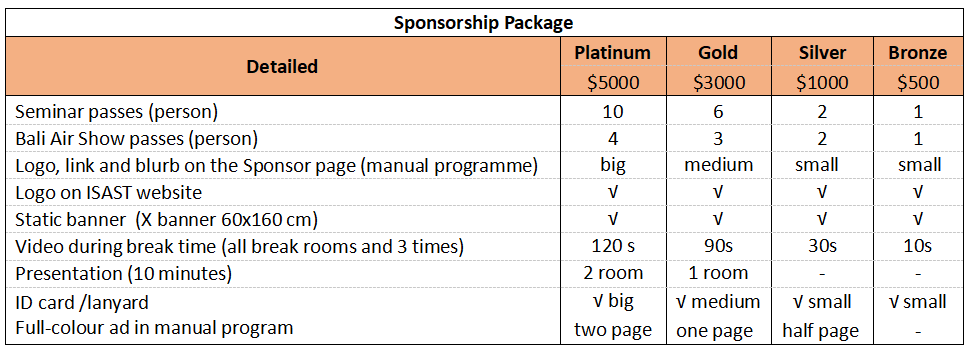
- Example blurb and sponsor page describe company profile on the manual programme
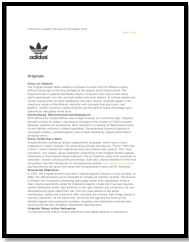
- X banner 60×160 cm

- Logo
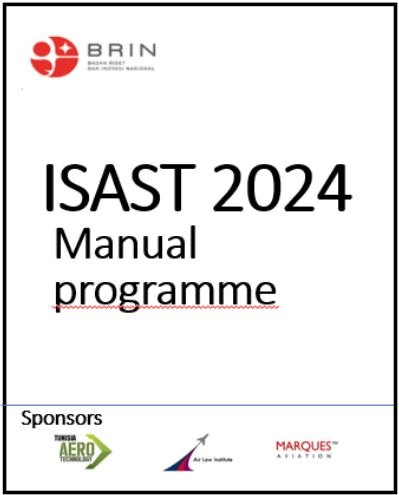
Contact
Contact Person
Elvina Ayu Ratnasari, S.Si +62 857 5906 3175
Email
isast2024@brin.go.id

